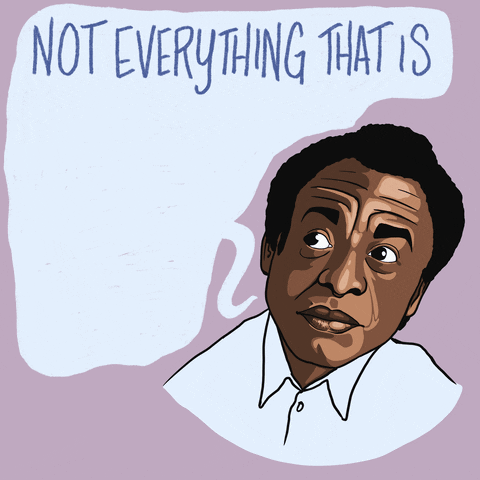'The Warmth of Other Suns: The Epic Story of America's Great Migration' by Isabel Wilkerson
'By their actions, they did not dream the American Dream, they willed it into being by a definition of their own choosing.'—Review #162

I hope all the dads out there are having a great day. In preparing to write about Isabel Wilkerson’s Pulitzer Prize-winning nonfiction work about the Great Migration, I stumbled across this article about fathers and what we know about their lives. It contains this line:
If you understand your father better, you understand yourself better. Sometimes the advice and concerns that fathers express are puzzling and make no sense. But if we understand the world our fathers came from and the families our fathers came from, it is less frustrating.
This reminded me of Robert Joseph Pershing Foster, one of the three Black Americans who emigrated from the Jim Crow South in the mid-20th century to seek a better life elsewhere in the United States whom Wilkerson interviewed extensively for this book. Foster grew up in rural Monroe, La., attended Morehouse College, went to medical school, served as a doctor in the U.S. Army during the Korean War, married into a prominent academic family from Atlanta, then drove cross-country to set up a private practice in Los Angeles. In L.A., he achieved wealth and esteem, becoming Ray Charles’s physician and a sharply dressed habitué of Las Vegas casinos and California horse tracks. But it struck me when Wilkerson wrote how Dr. Foster hardly ever told his children about his early years in segregated Louisiana and his escape from it. He wanted to shield them from that, and not taint their California prosperity with memories of segregation and oppression. I wondered if this book might have been the first time his children, and grandchildren, had ever heard his stories. Did they know, for instance, about his long drive in the 1950s through the Southwest where motel after motel refused to give him a room for the night because of the color of his skin? Did they know about how despite his medical degree and Army service he wasn’t allowed to practice medicine at certain hospitals or on certain patients? I tried to think about what it would feel like to meet a parent or grandparent for the first time in a book. Would it be enriching? Or melancholy? Probably both, which was my reaction to this essential and fascinating book.
Here’s the cover:
If you enjoy this review, click the ♥️ above or
New here?
Wilkerson also follows Ida Mae Gladney, a sharecropper on a cotton plantation in Mississippi who emigrated to Chicago in the 1930s, and George Starling, a citrus-farm worker who fled Florida for New York City, who were among millions of Black Americans to leave the South for cities up North and out West between World War I and the 1970s during what is now called the Great Migration. Through their eyes we see the horrors of Jim Crow, from the ever-present threat of lynchings and other violence to laws written and unwritten meant to keep Black Americans in a position subordinate to whites. We see swindling farm bosses, governments defunding schools for Black children, voting rights restricted and Black neighborhoods neglected with streets left unpaved, among many other things; all reasons why many left to seek a better life outside the South. Gladney and her family had to sneak out of Mississippi to avoid the plantation boss contriving some way of keeping them there. Starling had to leave because he was about to be murdered for organizing orange pickers to demand higher wages. And once they came North, their lives were still constrained by racism and prejudice. Starling, despite having some college education, could only get a job as a railroad porter and, even after decades of work, never earned a promotion or got a chance to advance. Gladney, after years of saving, was able to purchase a home on Chicago’s South Shore, only to see all the white families move away and the neighborhood become overrun by crime. Near the end of the book, Ida Mae attends a community meeting where a young politician gives a speech during his campaign for the Illinois State Senate. It’s:
It was a nice moment: A former sharecropper in the same room as the future first Black president showed that the United States is capable of growth and positive change. But current events, including attempts to limit voting in Georgia, Texas and elsewhere, among many other things, show there is plenty of progress left to be made. The establishment of Juneteenth1 as a federal holiday has renewed national focus on Black experiences in America. This is a good and important thing. To understand each other better, learning and facing the history of our fathers and mothers is essential. Because like this GIF of James Baldwin says:

‘The Warmth of Other Suns’ is one of the best books I’ve read this year. It is beautifully written and packed with information and detail. It educated me and inspired me, and also often left me exhausted and saddened by the hate and violence so many have experienced. I’ll never again look at an orange or a cotton shirt without thinking of danger and backbreaking labor that people endured to provide us with those things. My one wish is that this book had included pictures because while Wilkerson effectively conjured images of Robert Foster, Ida Mae Gladney and George Starling in my mind, I wanted to see their faces. But that’s a minor issue. I strongly recommend you read this book.
How it begins:
The night clouds were closing in on the salt licks east of the oxbow lakes along the folds in the earth beyond the Yalobusha River. The cotton was at last cleared from the field. Ida Mae tried now to get the children ready to go gather the clothes and quilts and somehow keep her mind off the churning within her. She had sold off the turkeys and doled out in secret the old stools, the wash pots, the tin tub, the bed pallets. Her husband was settling with Mr. Edd over the worth of a year’s labor, and she did not know what would come of it. None of them had been on a train before—not unless you counted the clattering local from Bacon Switch to Okolona, where, “by the time you sit down, you there,” as Ida Mae put it. None of them had been out of Mississippi. Or Chickasaw County, for that matter.
There was no explaining to little James and Velma the stuffed bags and chaos and all that was at stake or why they had to put on their shoes and not cry and bring undue attention from anyone who might happen to see them leaving. Things had to look normal, like any other time they might ride into town, which was rare enough to begin with.
Velma was six. She sat with her ankles crossed and three braids in her hair and did what she was told. James was too little to understand. He was three. He was upset at the commotion. Hold still now, James. Lemme put your shoes on, Ida Mae told him. James wriggled and kicked. He did not like shoes. He ran free in the field. What were these things? He did not like them on his feet. So Ida Mae let him go barefoot.
My rating:

‘The Warmth of Other Suns: The Epic Story of America’s Great Migration’ by Isabel Wilkerson was published by Random House in 2010 and by Vintage Books in 2011. 622 pages, including notes, index and acknowledgements. $16.51 at Bookshop.org.
Want to discuss this book?
Connect: Twitter | Instagram | Goodreads | Email
Before you go:
ICYMI: Review #161 featured ‘Second Place’ by Rachel Cusk | Browse the Archive
Do this: The Center for Fiction in Brooklyn is hosting ‘An Evening with Stacey Abrams’ on Tuesday, June 22, at 7 p.m. to coincide with the paperback release of her book ‘Our Time Is Now.’ Abrams, a Georgia Democrat, voting-rights leader and novelist, will discuss voting and other issues with journalist Cari Champion. Click here for ticket info.
Thanks for reading, and thanks especially to Donna for editing this newsletter!
Until next time,
MPV
Books on GIF newsletters with most ♥️s
For those of you interested in learning more about the history, meaning and celebration of Juneteenth, The New York Times has this explainer.









This sounds fascinating and moving. I’d like to learn more about how she researched it and found the families she profiled. But first I’ll read it! Thanks for telling us about this book, BoG.